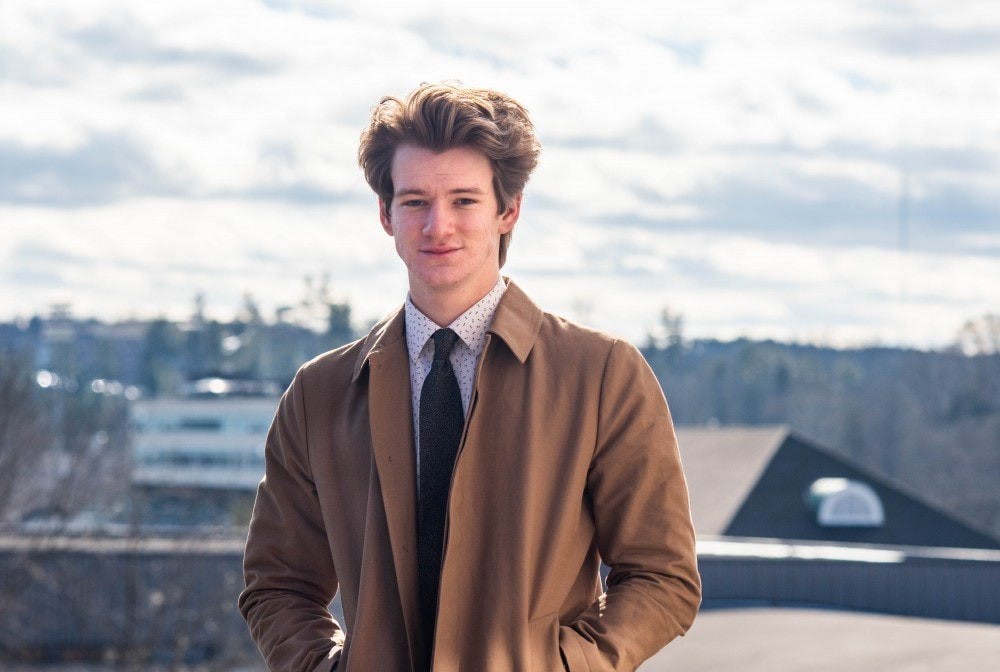The fourth DNC presidential debate was held Tuesday at Otterbein University in Westerville, Ohio. For viewers who have watched previous debates, much of the rhetoric was the same, but there were several refreshing changes.
Topics were similar, but newer issues such as the impeachment inquiry and President Trump’s decision to pull out of Syria provided new opportunities for candidates to criticize Trump’s actions.
The most apparent change was Sen. Elizabeth Warren finally facing opposition from other candidates. South Bend Mayor Pete Buttigieg, Sen. Bernie Sanders and Sen. Amy Klobuchar provided arguably the first real challenge Warren has faced throughout her campaign. When refusing to acknowledge that policies like Medicare-for-All will cause middle-class taxes to rise, all three candidates proceeded to push back.
Despite some adversity, Warren remained one of the brightest candidates. Sanders also looked strong as the most consistent on his policies. His talking points that have revolutionized the Democratic Party are as strong as ever.
He continued to rail against wealth inequality and the 1%, just as he’s done his entire political career. His platform comes across with genuineness that candidates like Sen. Cory Booker and Rep. Beto O'Rourke simply cannot match.
Perhaps the two biggest winners of the night, however, were Klobuchar and Buttigieg. Buttigieg has been polling among the top five, while Klobuchar has been stuck in the middle of the pack. But her clear and concise answers paired with their strong offensive against the front-runners proved why they belonged on the stage.
Julian Castro and Andrew Yang also had moments of promise. Castro delivered the hardest-hitting answer on gun violence when he addressed the fact that not only is gun violence a huge problem, but police violence is also gun violence, referencing last week’s shooting of Atatiana Jefferson in her home.
Yang, on the other hand, had some ugly moments, such as when he asked the crowd to raise their hands if they were affected by lost manufacturing jobs, and the camera did not swivel fast enough, so nobody in the crowd did. But his outsider perspective and unique ideas continue to be refreshing, especially in contrast to a traditional politician like former Vice President Joe Biden.
The debate also had its share of bizarre moments. Biden had another battle with the English language, Bernie confirmed he had not smoked marijuana and Tom Steyer, a former hedge fund manager and billionaire, railed against corporations and, oddly enough, proclaimed billionaires shouldn’t exist.
The questioning had arguably gotten better since the first debate, but one question in specific seemed absurd. While questioning candidates about the opioid crisis, the mediators cut Bernie short from giving an answer. They instead proceeded to ask him a question about candidate health and age without letting him respond to a more serious, policy-related question. The senator suffered a heart attack earlier this week, and CNN has spent a lot of time discussing the incident.
The question seemed at best forced and at worst simply ageist. The age of a president is a valid concern, especially when many of the candidates are over the age of 70, but clearly targeting Sanders seemed like a telegraphed criticism by the moderators and not a legitimate question.
As the debates continue and non-contenders continue to be weeded out, the potential nominees will have more opportunity to pull ahead or become front runners. The next few months will be pivotal in the 2020 election.
Noah Wright is a junior studying strategic communication at Ohio University. Please note that the views and opinions of the columnists do not reflect those of The Post. Want to talk to Noah? Tweet him @NoahCampaign.






